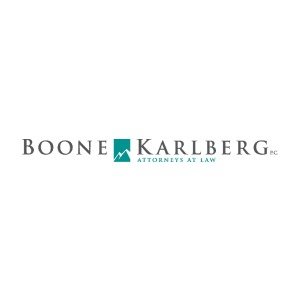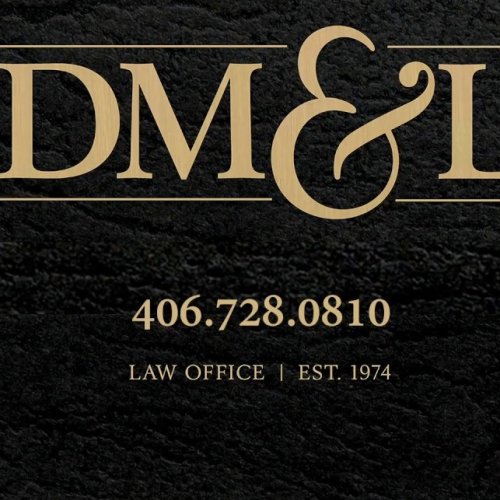Best Bankruptcy & Debt Lawyers in Montana
Share your needs with us, get contacted by law firms.
Free. Takes 2 min.
Or refine your search by selecting a city:
List of the best lawyers in Montana, United States
United States Bankruptcy & Debt Legal Articles
Browse our 2 legal articles about Bankruptcy & Debt in United States written by expert lawyers.
- Filing Chapter 7 in 2026 United States: New Income Limits
- Chapter 7 gives a near-total discharge of most unsecured debt, but you must pass a "means test" that compares your household income to your state's median income for your family size in 2026. The U.S. Trustee Program updates the state median income numbers at least once a year; you qualify... Read more →
- Debt Collectors in the US: Stop Harassment and Verify Debt
- You have strong federal rights under the Fair Debt Collection Practices Act (FDCPA) and CFPB Regulation F. Collectors cannot harass you, must send a validation notice, and must stop collecting until they verify if you dispute in writing within 30 days. Tell collectors to stop contacting you, then follow up... Read more →
About Bankruptcy & Debt Law in Montana, United States
Bankruptcy and debt law in Montana offers individuals and businesses legal options when facing overwhelming financial hardship. Bankruptcy provides a court-supervised process that can eliminate or restructure debts, giving people a chance to regain financial stability. In Montana, bankruptcy cases are filed in the United States Bankruptcy Court for the District of Montana and are governed by federal law, specifically the U.S. Bankruptcy Code. However, Montana's state-specific exemptions and regulations also play an essential role in determining how bankruptcy affects assets and debt obligations.
Why You May Need a Lawyer
Seeking legal representation in bankruptcy or debt matters can make a significant difference in outcomes for several reasons:
- You are unsure whether to file for bankruptcy or pursue other debt relief options.
- You want to understand which assets you can keep and which debts can be eliminated.
- You face lawsuits, garnishments, repossession, or foreclosure by creditors.
- Your income, expenses, or assets make bankruptcy eligibility unclear.
- You operate a business and need help navigating business debt resolution or bankruptcy filing.
- You want to protect co-signers or family members from debt obligations.
- You encounter creditor harassment or violations of fair debt collection laws.
A qualified attorney ensures your rights are protected, helps avoid costly mistakes, and provides guidance tailored to your unique situation.
Local Laws Overview
While bankruptcy cases in Montana are governed mainly by federal law, state law plays a crucial role in determining exemptions - the assets you may keep during bankruptcy. Key aspects include:
- Montana Bankruptcy Exemptions: Unlike many states, Montana does not allow residents to use federal exemptions. Instead, filers must use exemptions set out by Montana state law to protect equity in their home (homestead exemption), vehicles, tools of the trade, retirement accounts, and certain personal property.
- Homestead Exemption: Montana allows individuals to protect up to $350,000 in equity in their primary residence.
- Types of Bankruptcy: Most individual filers use Chapter 7 (liquidation, most unsecured debts discharged) or Chapter 13 (repayment plan). Businesses may consider Chapter 11 (reorganization).
- Means Test: To qualify for Chapter 7, your income must fall below Montana’s median income for your household size or pass a means test evaluating disposable income.
- Debt Collection & Consumer Protection: State and federal laws limit what creditors and debt collectors can do. Montana follows the Fair Debt Collection Practices Act (FDCPA) alongside its own consumer laws.
- Wage Garnishment Limits: Montana restricts the portion of wages creditors may garnish, following federal guidelines.
Understanding Montana's unique exemptions and rules is essential for successfully navigating bankruptcy and debt solutions.
Frequently Asked Questions
What kinds of debts can be discharged in bankruptcy in Montana?
Most unsecured debts, such as credit cards, medical bills, and personal loans, can be discharged. Certain debts, such as child support, alimony, recent taxes, and most student loans, are typically non-dischargeable.
Do I have to give up all my property if I file for bankruptcy in Montana?
No. Montana’s bankruptcy exemptions allow you to keep certain property, including some equity in your home, a vehicle, retirement accounts, tools, and personal belongings. Non-exempt assets may be sold to pay creditors in Chapter 7 bankruptcy.
What is the difference between Chapter 7 and Chapter 13 bankruptcy?
Chapter 7 is a liquidation bankruptcy where non-exempt assets are sold to pay creditors, and most remaining debts are discharged. Chapter 13 allows you to keep your assets and repay debts over a three- to five-year period based on a court-approved repayment plan.
How do I know if I qualify for Chapter 7 bankruptcy in Montana?
Eligibility depends on passing the means test, which compares your income to the state median for your household size. If your income is too high, you may need to file for Chapter 13 instead.
How does Montana’s homestead exemption work?
Montana allows you to exempt up to $350,000 of equity in your primary residence. This means you can protect this amount from creditors during bankruptcy.
Can bankruptcy stop foreclosure or repossession in Montana?
Filing for bankruptcy typically triggers an automatic stay, which temporarily halts foreclosures, repossessions, and collection actions. Chapter 13 may help you catch up on missed payments and keep your home or car.
Will bankruptcy affect my credit in Montana?
Bankruptcy will appear on your credit report for up to 10 years for Chapter 7 (seven years for Chapter 13), affecting your ability to obtain new credit, though many people can begin rebuilding credit soon after discharge.
Are there alternatives to bankruptcy for dealing with debt in Montana?
Yes. Other options include debt negotiation, debt consolidation, credit counseling, and payment plans. A lawyer or financial counselor can help evaluate these options.
Can creditors continue to contact me after I file for bankruptcy?
No. The court issues an automatic stay once you file, which prohibits most creditors from contacting you or continuing collection efforts while your case is pending.
How do I start the bankruptcy process in Montana?
You must file a petition and other required forms with the United States Bankruptcy Court for the District of Montana. Gathering documents such as financial records, income statements, and a list of debts and assets is essential. Consulting a bankruptcy attorney is the best first step.
Additional Resources
- United States Bankruptcy Court for the District of Montana: Provides forms, filing information, and court schedules.
- Montana Legal Services Association: Offers free or low-cost legal services and resources for qualified individuals.
- State of Montana, Office of Consumer Protection: Provides information on consumer rights and assists with debt collection issues.
- Local Credit Counseling Agencies: Nonprofit organizations provide debt management advice and budgeting assistance.
- Montana Bar Association Lawyer Referral Service: Connects individuals with qualified attorneys in bankruptcy and debt law.
Next Steps
If you are facing significant debt or considering bankruptcy in Montana, consider the following actions:
- Gather all financial documents, including loan statements, bills, income records, and information about your assets.
- Research your debt relief options, including bankruptcy and possible alternatives.
- Schedule a consultation with a qualified Montana bankruptcy attorney for a personalized analysis of your situation.
- Be prepared to discuss your financial history, debts, income, and goals during your consultation.
- Follow the advice of your attorney to ensure compliance with all local procedures and maximize the protection of your assets and rights during the process.
Taking proactive steps and seeking professional guidance can help you make the best choices and move forward toward a stronger financial future.
Lawzana helps you find the best lawyers and law firms in Montana through a curated and pre-screened list of qualified legal professionals. Our platform offers rankings and detailed profiles of attorneys and law firms, allowing you to compare based on practice areas, including Bankruptcy & Debt, experience, and client feedback.
Each profile includes a description of the firm's areas of practice, client reviews, team members and partners, year of establishment, spoken languages, office locations, contact information, social media presence, and any published articles or resources. Most firms on our platform speak English and are experienced in both local and international legal matters.
Get a quote from top-rated law firms in Montana, United States — quickly, securely, and without unnecessary hassle.
Disclaimer:
The information provided on this page is for general informational purposes only and does not constitute legal advice. While we strive to ensure the accuracy and relevance of the content, legal information may change over time, and interpretations of the law can vary. You should always consult with a qualified legal professional for advice specific to your situation.
We disclaim all liability for actions taken or not taken based on the content of this page. If you believe any information is incorrect or outdated, please contact us, and we will review and update it where appropriate.
Browse bankruptcy & debt law firms by service in Montana, United States
Montana, United States Attorneys in related practice areas.
Browse bankruptcy & debt law firms by city in Montana
Refine your search by selecting a city.










